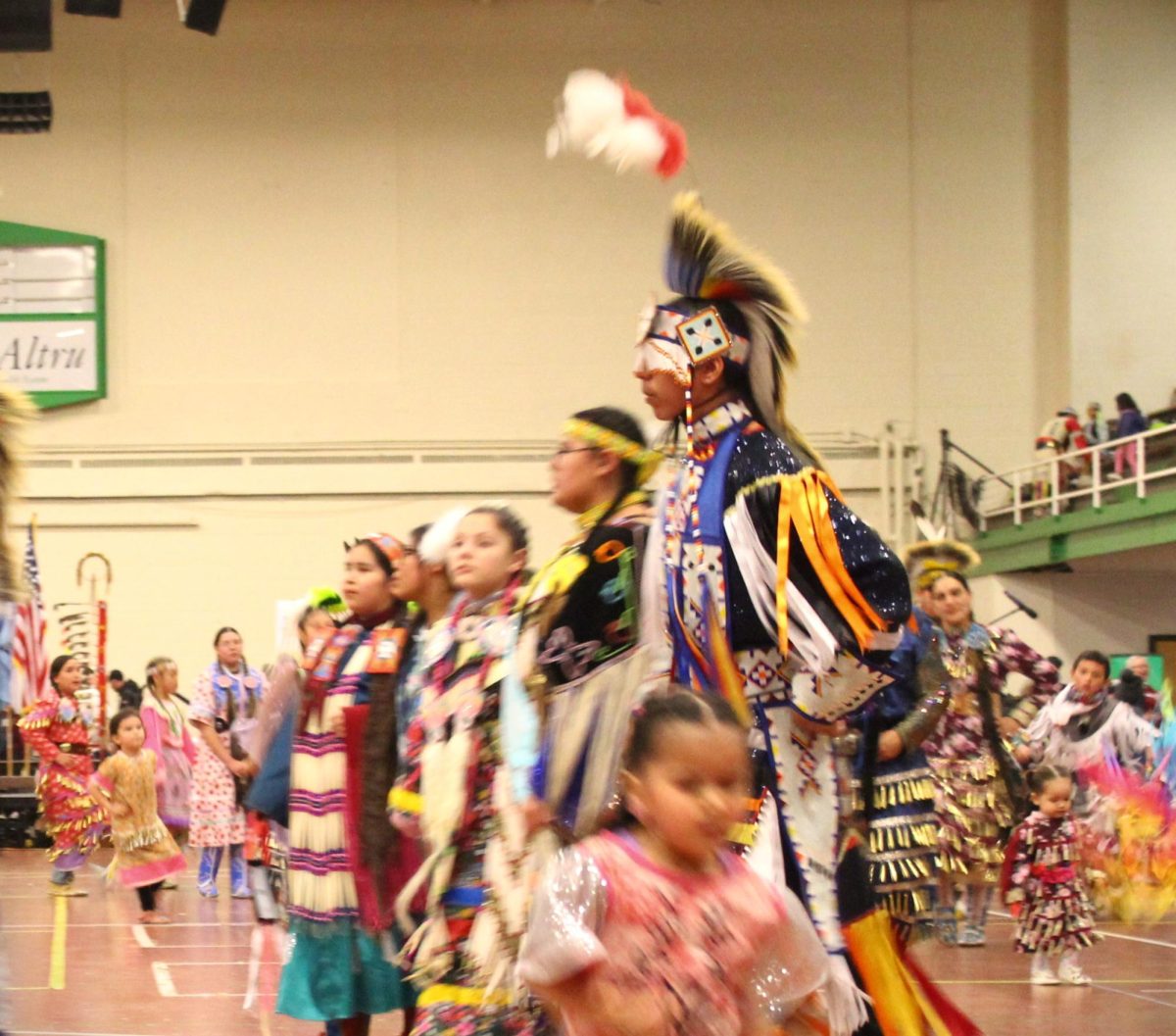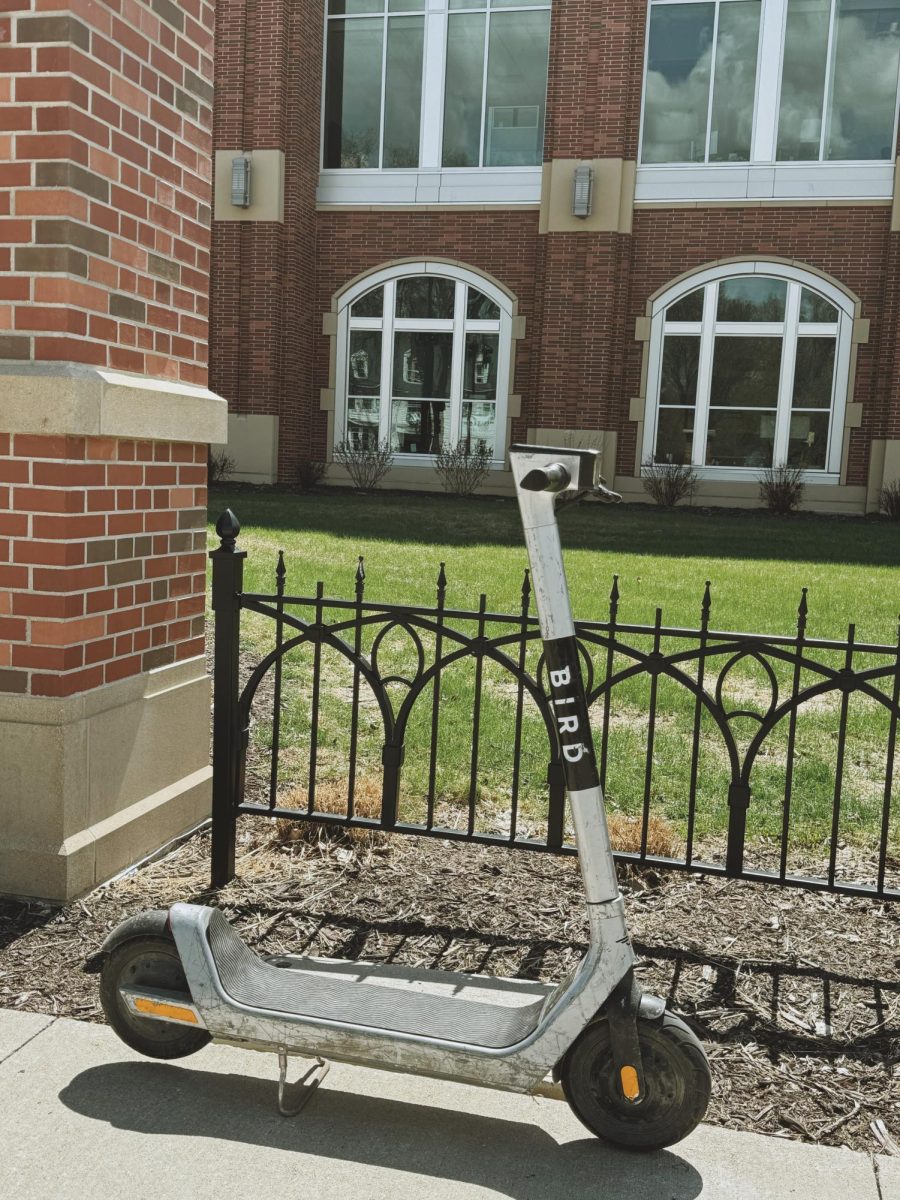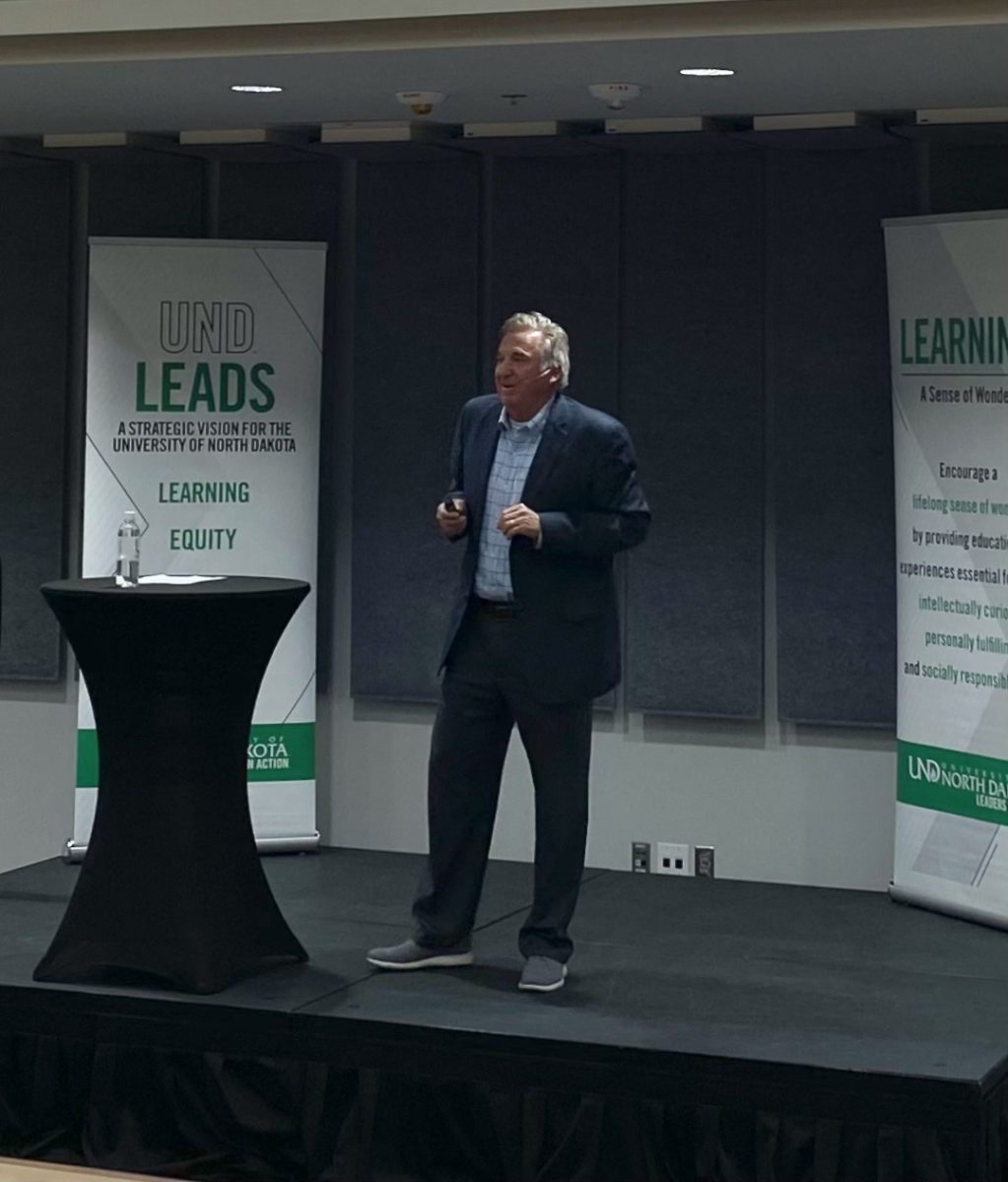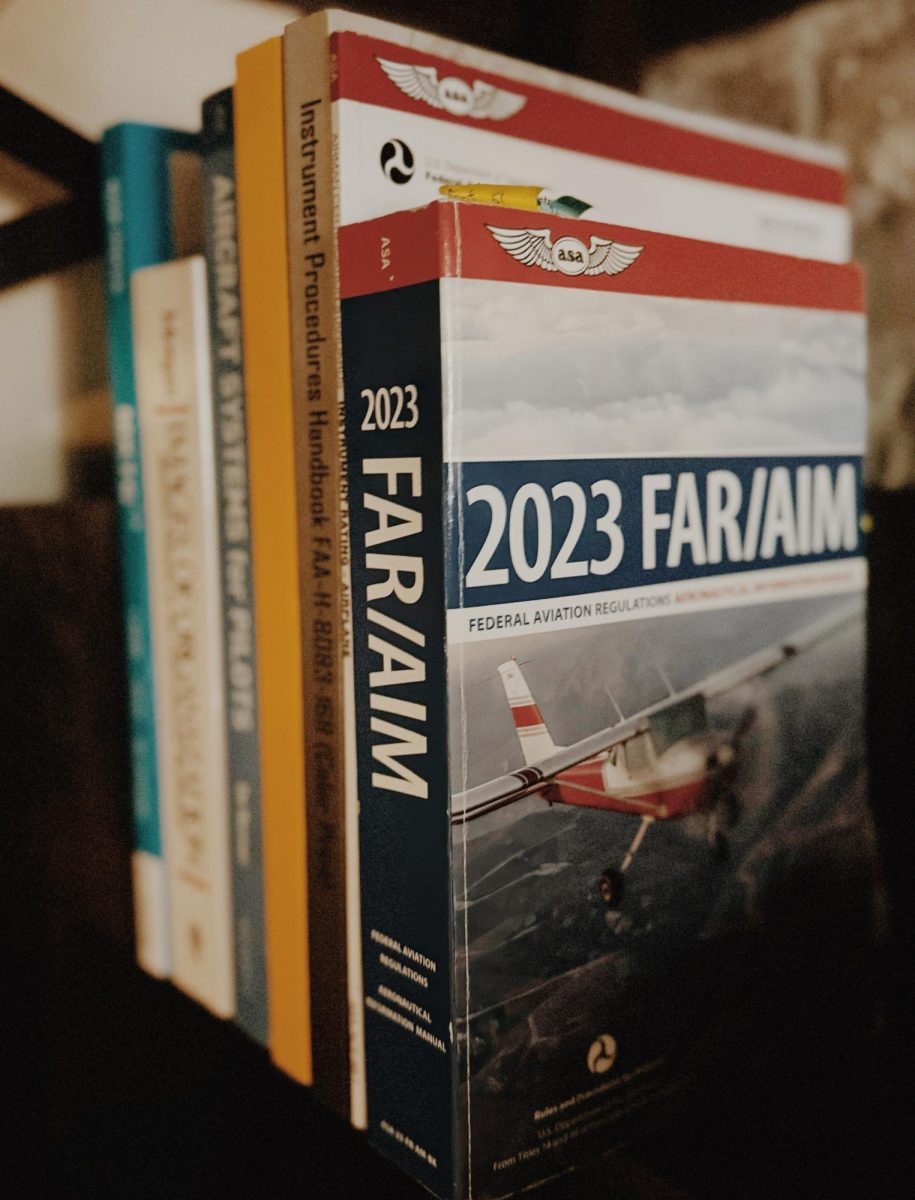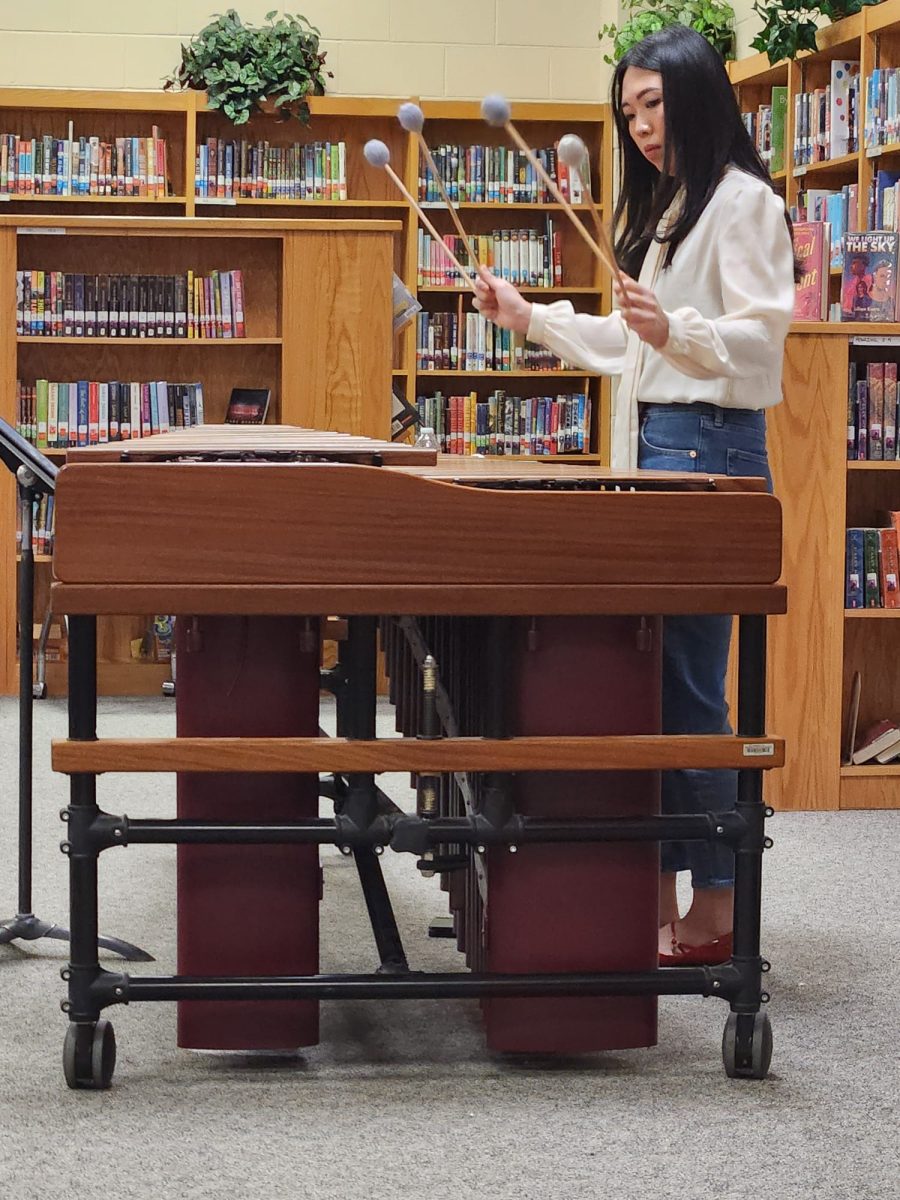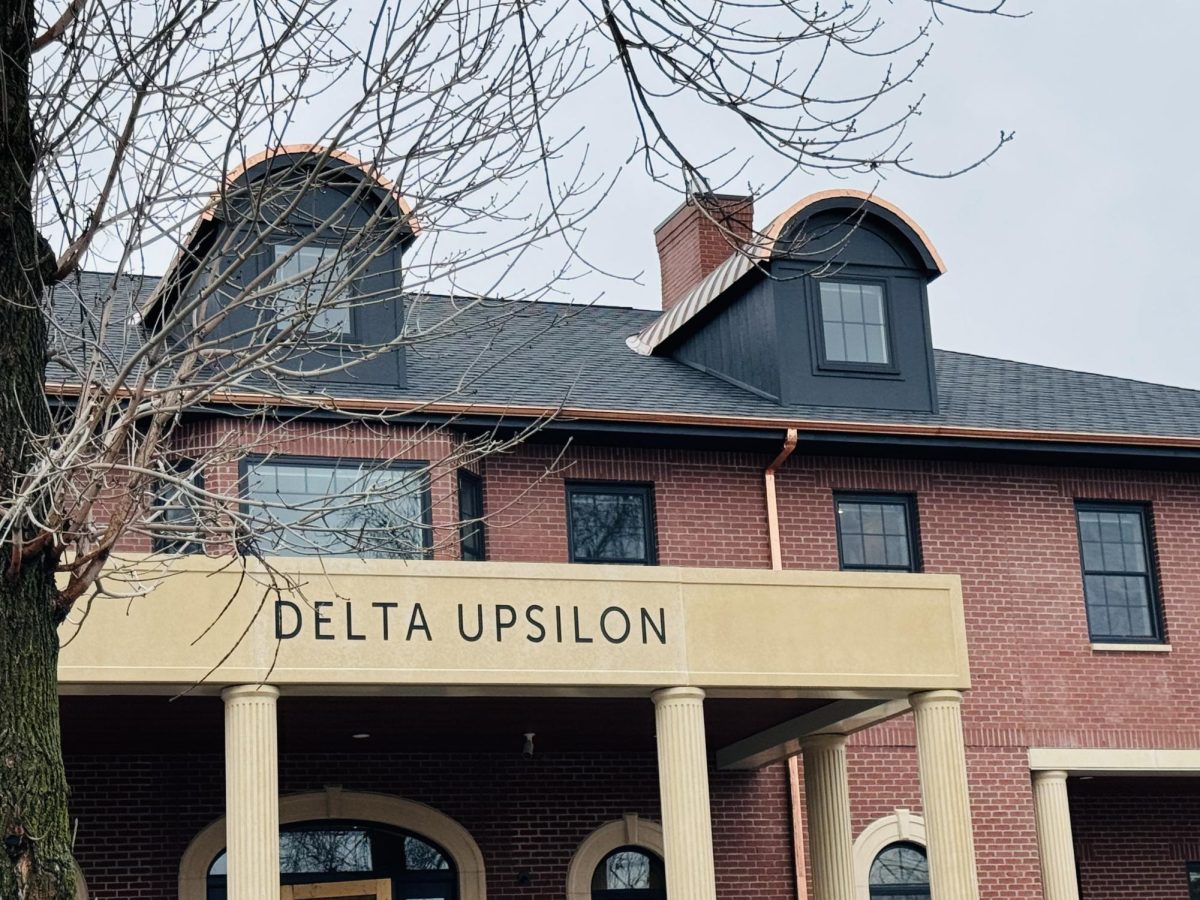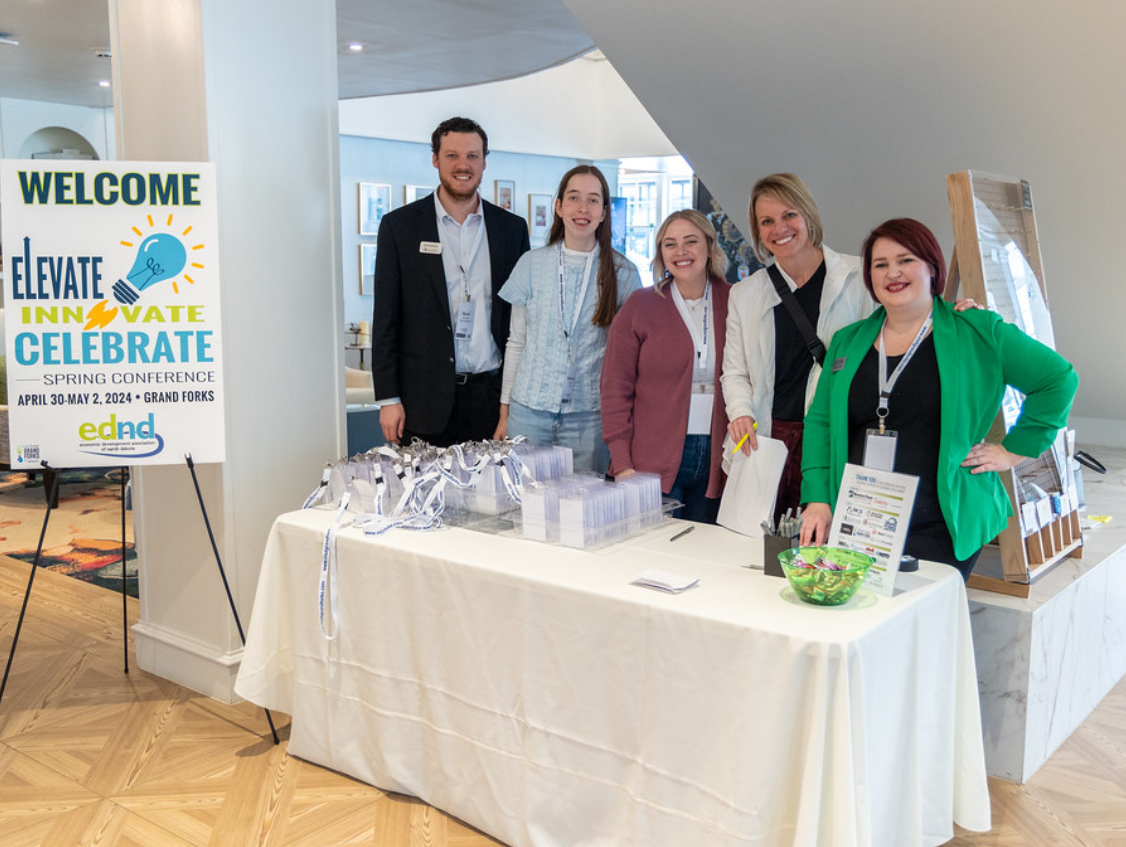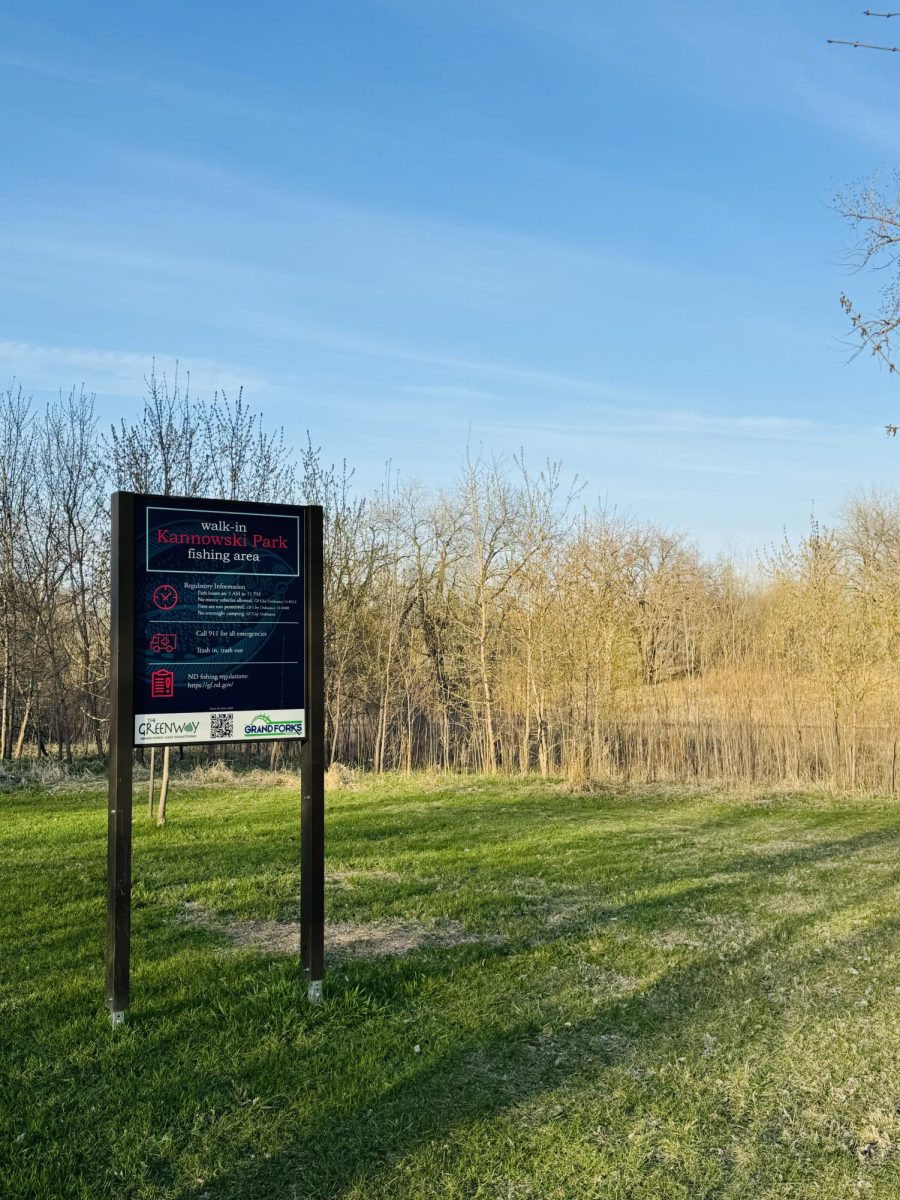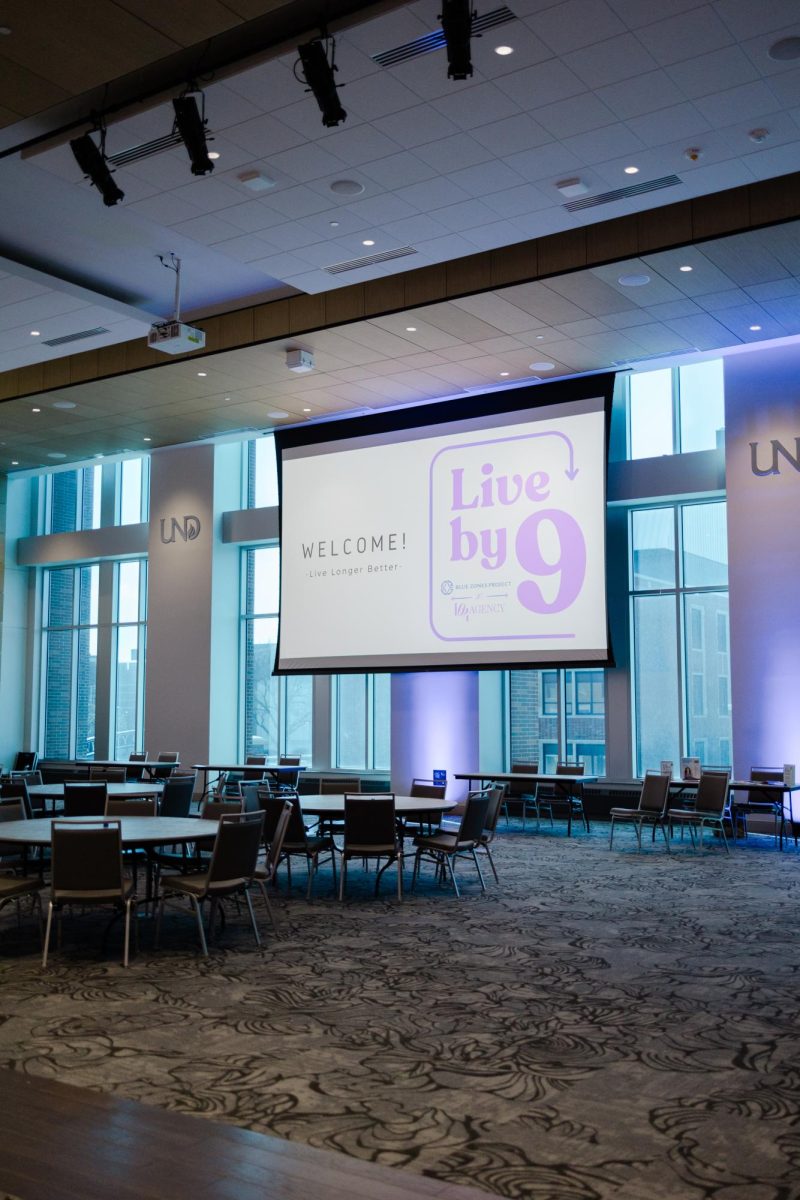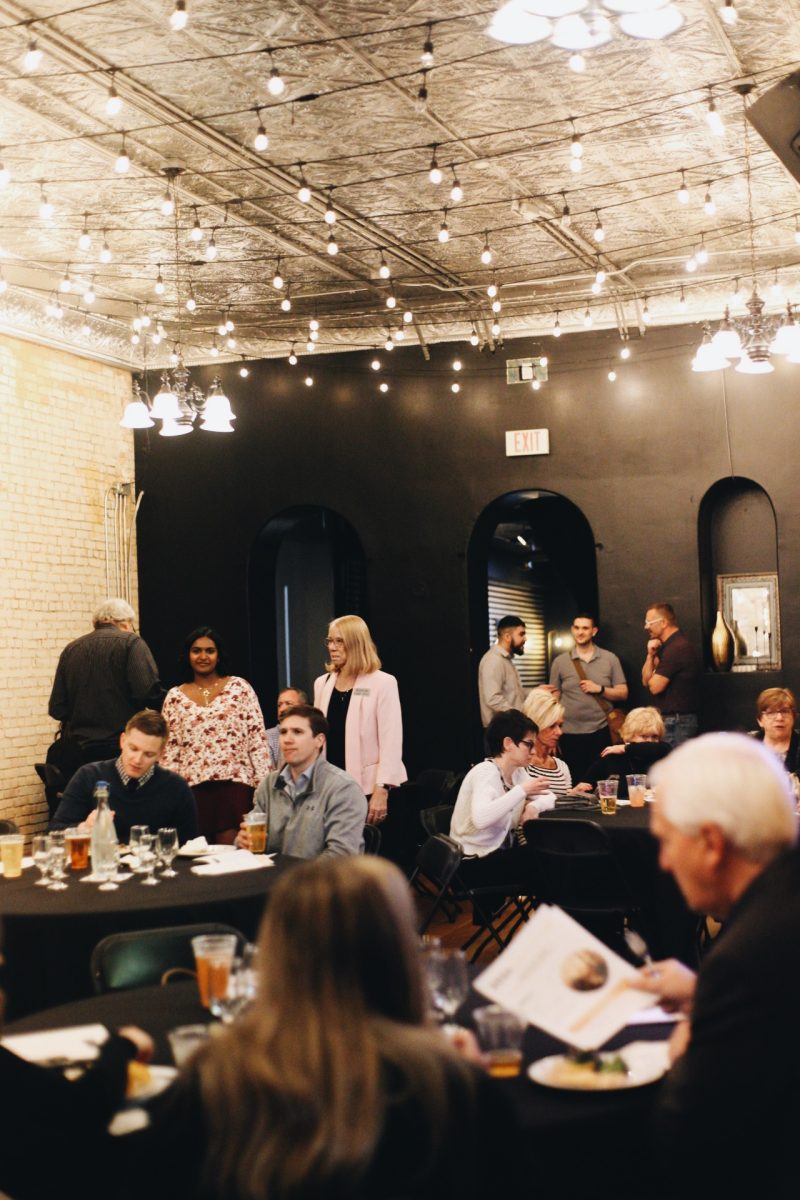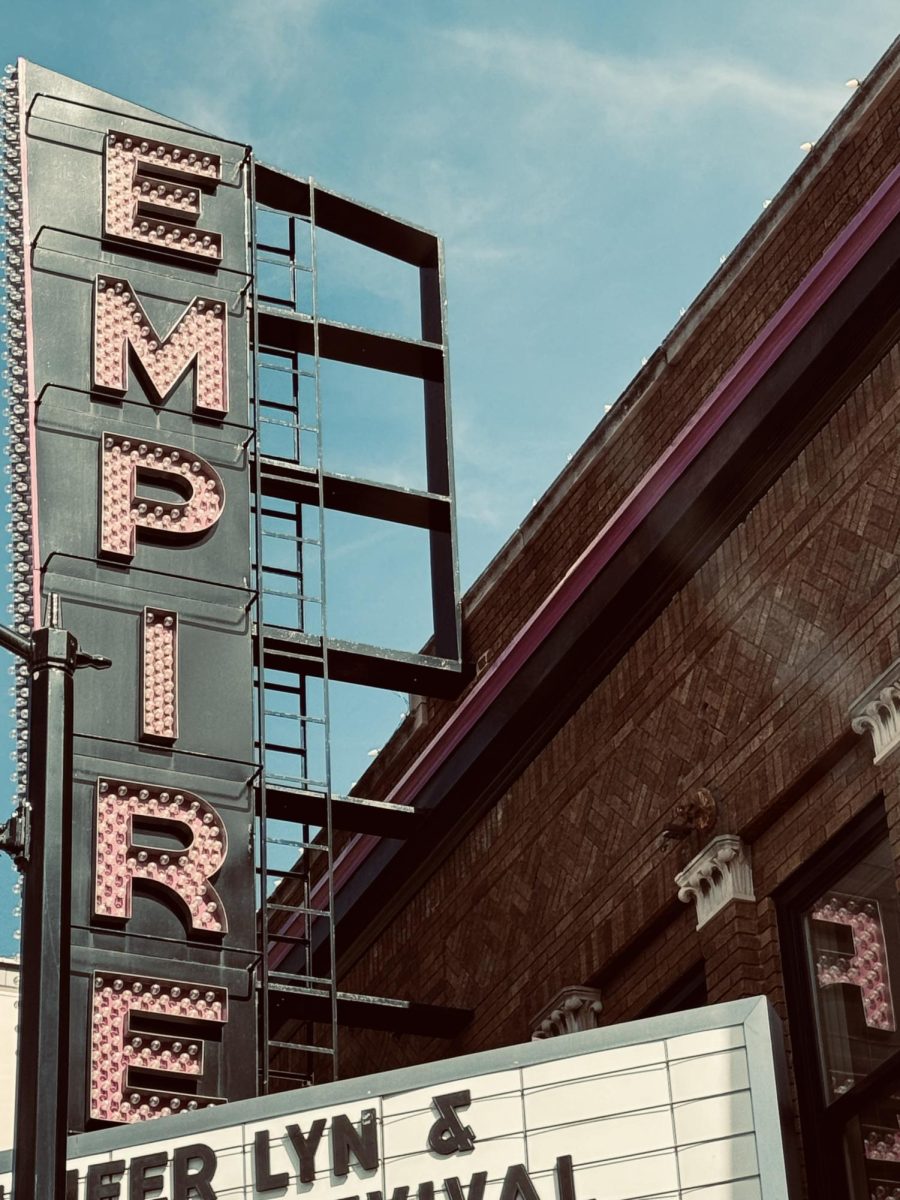The 52nd annual Time Out Wacipi Powwow took place on April 19 and 20 in the Hyslop Sports Center. Community members and students gathered to celebrate Indigenous heritage, reconnect with friends and family and honor the sacrifices and achievements of individuals among the tribes. A long-held tradition with roots dating back to the student antiwar movement, the Time Out Wacipi is an important cultural event for the university and for Grand Forks.
In the fall of 1968, students nationwide participated in a “Time Out” of class to process current events. The Vietnam War had been dragging on for over a decade, and antiwar sentiment among students had spiked dramatically. On top of these tensions, the assassination of Dr. Martin Luther King in April caused national dismay, especially among civil rights supporters. This tragedy was followed by the assassination of President John F. Kennedy in November. Sorrow and outrage were felt across the country, and the National Student Association set aside October 22 as a day to ponder, “where do we go from here [1]?”
The nationwide Time Out phenomenon only occurred in 1968, but the following year, student organizers at UND took the initiative and the name to raise awareness about Native American issues. A 1969 April edition of the Dakota Student promoted the event saying, “University students and faculty, as well as high school students, are being asked to take ‘time out’ Tuesday to ‘give a damn’ about the American Indians [2].”
At the time, UND did not have an Indigenous Studies program, and the courageous Indigenous students leading the way with Time Out sought to change that. Within just two years, support had been gathered from across the state, and UND’s first Indian Cultural Center was created. The following years saw an expansion of both the Indigenous Studies program and the Time Out event.
Education and raising awareness about issues Indigenous people face have always been a focal point of the tradition. This year, the week leading up to the event boasted an array of lectures and seminars on various pressing issues.
Thanks to the Native American Law Student Association, Michael Potter from the Bureau of Indian Affairs, Missing & Murdered Unit, to spoke to students via Zoom about the major current human rights issue of missing and murdered indigenous women. Last Wednesday, UND’s Northern Plains Indian Law Center hosted its annual Distinguished Indian Law Speaker event. This year, the Law Center honored Walter Echo-Hawk, who presented a lecture titled “Challenges for Federal Indian Law Practitioners in the Decade Ahead.”
The annual Indigenous Trauma and Resilience Research Center COBRE Symposium took place last Friday and Saturday as well. During the event, invited speakers presented breakthrough findings in various Indigenous mental and medical health studies.
The Wacipi began at 7 p.m. on Friday and Saturday, but the gymnasium was bustling long before then each night. Vendors from far and wide set up stands to display their beautiful beadwork and other intricate crafts along the north and south walls, leaving the western wall for the impressive concession operation. The food served included chili, taco in a bag and frybread tacos. Hundreds of happy people, frybread taco in hand, wove through the vendors, stopping to chat, eat and buy. The immensity of the room amplified the merry sound of jingle dresses and laughter, and one could not help but feel a true sensation of joy upon hearing it.
The tone of the room changed when the drums initiated the Grand Entry. Onlookers sat transfixed as a massive procession entered the inner circle of the gym. Competition-winning dancers representing multiple tribes wore breathtaking sets of full regalia. Guests of honor and military veterans led the procession, including Dr. Monica Mayers, a celebrated tribal leader, physician, Army Veteran, UND Alumni and human rights advocate. The age range of the powwow participants necessitated the occasional use of both baby strollers and walkers and lent to a beautiful overall image of strong unity and community.
Emcee Lawrence Baker paid homage to Indigenous strength eloquently in his introduction to the Victory Dance stating, “the victory is that we’re still here. No matter what they do, we are still alive, still living.”
The thunderous applause he received followed by a truly spectacular Victory Dance, proved his powerful statement immediately. A proud, defiant and celebratory proclamation of existence was made as they danced, drummed and sang.
The annual Time Out Wacipi is not only an integral element of UND’s relationship with the Lakota People, on whose land they operate, but also an avenue for the community to honor and celebrate all Indigenous people. More importantly, it is an invitation to build connections and find solutions to problems plaguing Indigenous communities.
[1] Murphy, Connor. “How Time Out Wacipi began… and how it changed UND,” UND Today. April 7, 2022.
[2] Murphy, Connor. 2022.
Quindelynne Davis is a Dakota Student General Reporter. She can be reached at [email protected].


